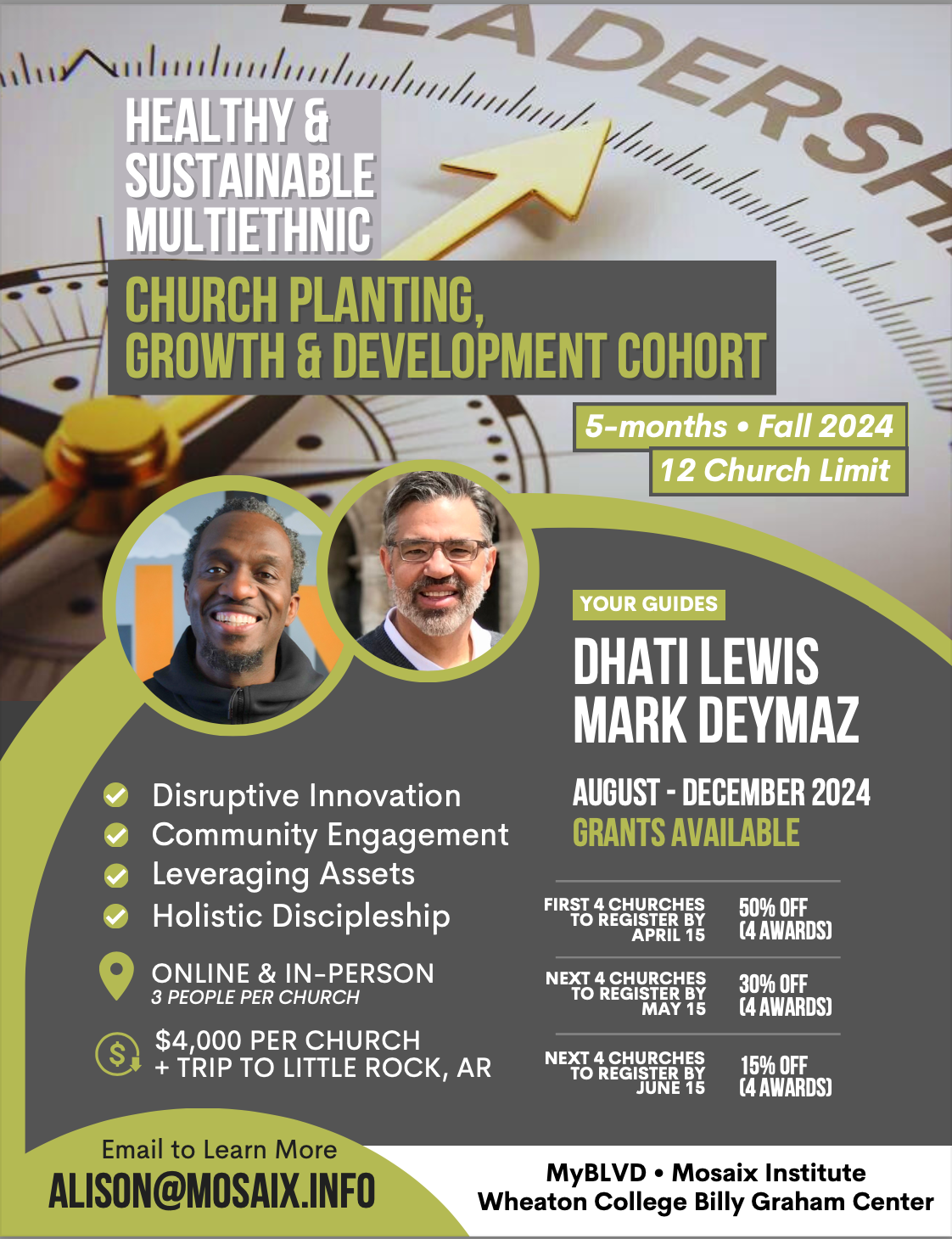You're not crazy. You're not alone. A network for outliers just like you!
We build healthy multiethnic and economically diverse, socially just, culturally intelligent, and financially sustainable churches.
Want to build a healthy multiethnic church? You can't do it alone! Whether through individual coaching or cohort learning, our team of experienced, credible, and competent practitioners will help you work smart, avoid mistakes, and gain competence. Learn more.
When it comes to overcoming cultural tensions, we’ve been self-diagnosing and guessing at remedies for far too long. Mosaix is the CQ® Center's preferred partner for delivering assessment & training to faith-based organizations throughout North America. Start here.
Tithes and offerings are no longer enough to advance or sustain effective ministry in the 21st century. Not only to survive but thrive organizationally going forward, pastors today must learn to leverage church assets and generate sustainable income. Learn more.
Churches today that fail to empower diverse leaders put the credibility of their mission and message at risk. Think of MosaixSearch as a boutique shop helping to place leaders of color in churches taking intentional steps to become healthy multiethnic organizations. Start here.
Take 13 seconds and check out the vibe!
Join Our Mailing List
Please add your email to stay informed on new products, services, and upcoming events.
“The multiracial, multiethnic church movement has come so far, further than I could have ever let myself imagine in this period of time. May God reveal for us and empower us that this vehicle called the church makes right what is broken in this world. Let’s work for churches that are truly hope for all.”
Dr. Michael O. Emerson, author of Divided By Faith, speaking at Mosaix’ 4th National Conference. (11/2019)
The world has changed...
The time to pivot is now!


